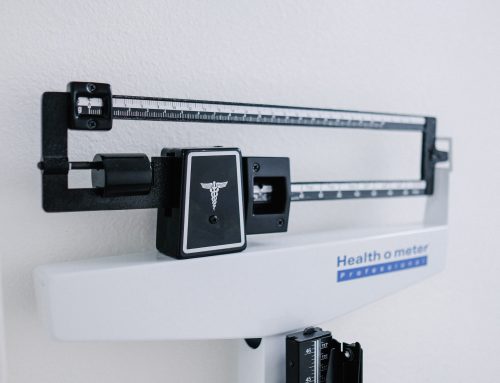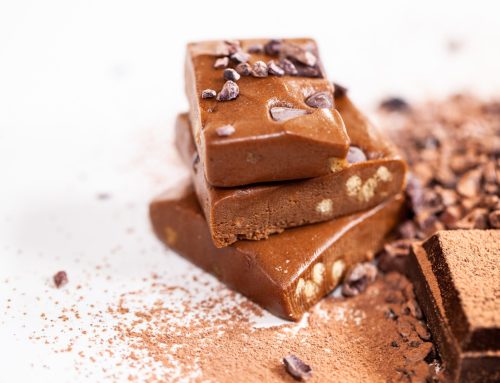As a nation, we’ve been lead to believe that fat is inherently bad, no matter what the source. We’ve been told that we should reduce dietary fats and that they are to blame for increasing Heart Disease rates. More recent studies show those recommendations were made in error and there is much more nuance to dietary fats. I see a shift from many of my patients, friends and family, to being more open to including more fats in their diets, but unsure which one’s are “healthy.” There’s still a fair amount of old information, circulating, that could lead someone to the wrong conclusion.
Myths Dispelled
One myth that still gets circulated, but is not supported by science, is that all unsaturated fats are good and all saturated fats are bad. This myth was born out of poor scientific research, reporting, assumptions, and politics. I’ll touch on just a few clarifying points below and leave some more resources, if you’d like to read more about recommendations based on current studies.
- Saturated Fat and Dietary Cholesterol Don’t Cause Heart Disease– This stems from the idea that dietary cholesterol and saturated fat, cause increased blood cholesterol, which in turn, causes Heart Disease. This association has been disproven.
- For 75% of the population, eating more dietary cholesterol has no negative impact on blood cholesterol levels. For the other 25%, it can raise blood cholesterol, however this may not be a risk factor. Saturated fat and dietary cholesterol raise both LDL and HDL, so the ratio often remains unchanged. The ratio is a better predictor of risk, compared to total or LDL cholesterol numbers.
It’s true that some studies show that saturated fat intake raises blood cholesterol levels. But these studies are almost always short-term, lasting only a few weeks. (5) Longer-term studies have not shown an association between saturated fat intake and blood cholesterol levels. In fact, of all of the long-term studies examining this issue, only one of them showed a clear association between saturated fat intake and cholesterol levels, and even that association was weak.
Chris Kresser, M.S., L.Ac. See the full article with sources, HERE.
- High Blood Cholesterol Levels Don’t Accurately Predict Heart Disease Risk– Of those who suffer heart attacks, 40% have low cholesterol! Heart Disease is multifactorial (caused by a cumulation of factors). If you’re concerned and want to more accurately predict your risk, read THIS article and consider getting some additional labs done. You can contact me for more information on testing sites, if needed.
- Inflammation Is The Root Cause For Heart Disease– Many things cause excess and chronic inflammation, including oxidized fats, which I will cover below. Following a healthy diet and lifestyle can reduce your risk, most effectively.
- Your Body Makes 75% Of Your Blood Cholesterol– If you withhold eating cholesterol, your body with compensate and make more.
Another common misconception and fear, is that dietary fat makes you gain weight. This is mostly untrue. To clarify, if your diet already includes too many carbohydrates (especially refined sources), you would not be doing yourself any favors by adding more fat in (healthy fats or not). This can lead to increased inflammation and disease risk. The problem lies in the macronutrient (fat, protein and carbohydrate) ratios. In the context of a balanced diet (which is very individualized and can vary widely from person to person), adding healthy fats can actually help your body find a healthy weight, along with other health benefits.
What Types To Choose
Here is a list of fats and oils to both increase and decrease in your diet.
Highest Priority (more from this category than from the next)
Whole Food Fats From:
- Quality meats (grass-fed, pastured)
- Wild caught fish
- Dairy from grass fed cows
- Eggs
- Nuts
- Seeds
- Avocado
- Coconut
- Olives
- Cacao
Best Cooking Oils:
- *Olive Oil
- *Avocado Oil (Chosen Foods brand, recommended. Others may be oxidized)
- *Butter
- Coconut oil
- Ghee
- Palm Oil (sourcing for sustainability is something to consider)
- Pork Fat (from pastured pigs)
- Duck Fat
*Don’t use these oils for high heat cooking (above medium on the stovetop. Fine for the oven). These are primarily unsaturated fats, which are easily oxidized by higher heat and light exposure. Eating oxidized oils can cause cellular damage and lead to inflammation and atherosclerosis. Butter is a mostly a saturated fat, but the solids will burn (taste bad) at higher heat.
Fine in Moderation (don’t heat and store in fridge):
- Flax Oil
- Peanut Oil
- Sesame Seed Oil
Oils to Minimize:
- Corn Oil
- Soy Oil
- Safflower Oil
- Canola Oil
- Vegetable Oil or Shortening
- Grapeseed Oil
You will probably notice that the “Oils to Minimize” list, is primarily composed of poly unsaturated fats (PUFA’s). Yes, the ones we’ve been told are the “best” to choose. There are two main problems with those oils.
- The more unsaturated an oil is, the more unstable and prone to oxidation it is. As mentioned, oxidized fatty acids can cause cellular damage, which can lead to health issues, including atherosclerosis. We need an abundant amount of antioxidants to neutralize oxidative reactions.
- Three factors that make these unsaturated fats oxidize quickly are heat, air exposure, and light. Heat is especially important to consider when cooking with these oils, but also in the manufacturing process.
- Smoke point is often noted, as if it has something to do with oxidation. Smoke point really just means how high you can cook with the oil before it literally smokes and tastes bad. It’s not an indication of the oxidation point of the oil.
- The manufacturing process of these oils typically involves high heat, with many solvents and chemicals to extract and “purify” the oil.
- The “Best Cooking Oils” and “Use in Moderation” oils are usually extracted with a pressing method. Coconut, nuts, seeds, olives and avocados are all things we can recognize as being full of oils. You could imagine pressing those foods down and oil coming out. This can’t be said for soybeans, corn, etc, because they don’t contain that much oil and require more extreme extraction methods.
- Pressing the oils doesn’t require high heat and it allows for the natural antioxidants be retained. It’s important to note that not all olive oil is required to be processed at low heat, except in the EU. As mentioned, heat not only oxidizes the oils, but it also destroys much of the antioxidant properties of the oil. The brand of EVOO I’ve been using and is easily accessible is California Olive Ranch.
As you read through this article, you may wonder where to start making some changes. I encourage you to look at the concentrations of oils you use from the minimize list. Things like cooking oils, salad dressing and condiments will be more dense sources. You are literally pouring it on, rather than a spritz or spray here and there. HERE is one of my favorite salad dressings. I see more and more salad dressing brands that are using avocado or olive oil, rather than soybean or canola oil. Check the ingredients carefully, though. Often times the oils are mixed.
Lastly, don’t get hung up on perfection. For example, if you can’t afford to buy high quality meat all the time, that’s OK! It’s more important to make a shift to less processed food in general, than to worry about sourcing.
Look out for the next post about my favorite brands of chips that use coconut oil for frying! I mean, who doesn’t love chips!?
For more information on healthy fats in your diet, check out my article, Stop Being Afraid to Eat Fat!
 My office is open for in-person and virtual appointments. Here is the
My office is open for in-person and virtual appointments. Here is the 




[…] is this food made of? If I see ingredients I don’t like, such as inflammatory oils (safflower, sunflower, canola, soy, cottonseed, corn), chemicals, and/or ingredients I don’t […]
[…] my last article, Dietary Fats 101. How Much And What Kind, I wrote about the inflammatory properties of certain oils. Industrial seed oils that you’d […]
[…] healthy fats and less processed carbohydrates. It’s important to note, that simply adding more healthy fats into a diet, full of refined carbohydrates, in a terrible and possibly dangerous idea. If you want […]
[…] very impactful. I could just buy a bottle, but the price of premade marinades that don’t use industrial seed oils, is pretty high (makes sense, olive oil or avocado oils are more pricey). Up until now, we’ve […]